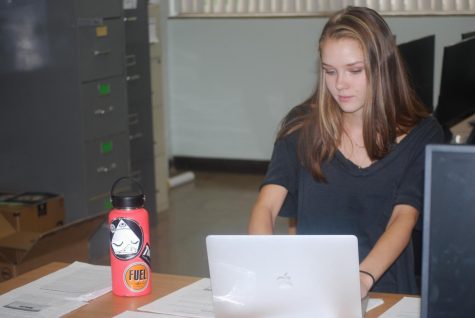The Plastic Problem Requires Our Attention
May 29, 2018
After news broke of a ban on plastic straws and utensils in the city of Seattle, some Seattleites expressed frustrations with the new policy, which is set to be enacted in June of 2018 according to The Seattle Times. Despite the minor inconveniences which the law might cause for some, it is a very needed step in the right direction.
As much as 1.6 billion tons of plastic ends up in the ocean annually, according to Oceana.org. The Plastic Pollution Coalition predicts that by 2050, the oceans will contain more plastic than fish by weight. Plastic is a go-to material for many products. Its cheap, versatile, and convenient. But it is not practical, and if we don’t act soon, it will literally be choking us.
Plastic is problematic in a multitude of ways. According to the Plastic Pollution Coalition, plastic is a product made to last forever, but a third of plastic is used only once. Instead of biodegrading, it just breaks down into smaller pieces. Plastic negatively affects human health–it is linked to many ailments, including cancers and birth defects.
Plastic spoils our groundwater once toxins from landfills soak into it. Other pollutants also tend to accumulate on plastics. Plastic poisons our food chain, and the negative effects of plastic cost billions to abate. So many problems are linked to plastic, it should be easy to stop using it.
However, a cease in the plastic problem is not easy. It will require a change in the way most of us in America live our lives, and the way businesses do things.
Despite the bleak reality of mass plastic use, some individuals, along with local laws such as the Seattle ban, are proving that steps can be made in order to remedy the problem. In a first ever attempt of its kind, The Ocean Cleanup, a non-profit technology group, will soon begin tackling the Great Pacific Garbage Patch, a giant patch containing 79,000 tons of plastic in the Pacific Ocean, spanning 617,763 sq miles. According to The Daily Planet, the organization hopes to have half of the garbage patch cleaned up within 5 years.
Plastic might be easy, but it’s important to remember that it’s not the best choice, if we’re looking to protect our planet. It’s worth looking into ways that we can reduce our own plastic usage. Just one look at any beach shows us that the plastic problem is real, but hopefully we can understand that it is worth solving.






